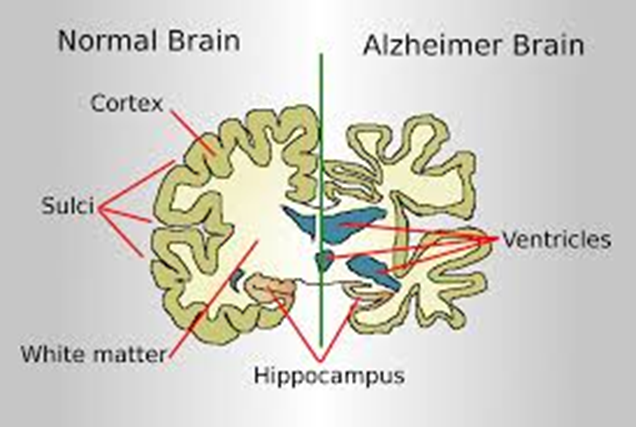A nurse observes the caregiver of a client who has Alzheimer's disease throwing magazines on the floor and crying. Which of the following actions should the case manager take first?
Discuss relaxation techniques with the caregiver.
Refer the caregiver to a local support group.
Consult social services to explore counseling for the caregiver.
Offer to talk with the caregiver about their feelings.
The Correct Answer is D
Choice A reason:
Discussing relaxation techniques with the caregiver is a beneficial action that can help manage stress. However, it may not be the most immediate need for a caregiver who is in the midst of an emotional crisis. Relaxation techniques are more preventive and are best introduced when the caregiver is receptive and not overwhelmed by acute distress.
Choice B reason:
Referring the caregiver to a local support group is an excellent long-term strategy for providing support and resources. Support groups can offer a sense of community and shared experience, which is invaluable. Nonetheless, this action does not address the caregiver's immediate emotional needs and should follow after providing immediate emotional support.
Choice C reason:
Consulting social services to explore counseling options is an important step in supporting the caregiver's mental health. Counseling can provide professional assistance and coping strategies for the caregiver's stress and emotional burden. However, this is a step that should be taken after addressing the caregiver's immediate emotional distress.
Choice D reason:
Offering to talk with the caregiver about their feelings is the most immediate and direct way to provide support. It addresses the caregiver's current emotional state and provides an outlet for their feelings. Active listening and empathetic communication can help alleviate the caregiver's distress and serve as a bridge to further support and resources.

Nursing Test Bank
Naxlex Comprehensive Predictor Exams
Related Questions
Correct Answer is {"dropdown-group-1":"D","dropdown-group-2":"D"}
Explanation
The client demonstrates risk for feelings of hopelessness due to powerlessness.
Choice A: Inadequate Nutrition
Reason: While the client ate only one bite of toast, which might suggest inadequate nutrition, the primary concern based on the provided information is not related to nutrition. The client’s symptoms and history point more towards emotional and psychological issues rather than nutritional deficiencies.
Choice B: An Unkempt Appearance
Reason: The client is described as wearing wrinkled sweatpants and a stained t-shirt, which indicates an unkempt appearance. However, this is more a symptom of their overall mental state rather than the primary risk factor. The unkempt appearance is a result of their depressive symptoms and feelings of hopelessness.
Choice C: Inappropriate Thought Process
Reason: There is no direct evidence in the provided information that the client is experiencing inappropriate thought processes. The client’s thoughts and feelings, such as sadness and hopelessness, are consistent with depression but do not indicate a disturbed or inappropriate thought process.
Choice D: Feelings of Hopelessness
Reason: The client explicitly states feeling “sad and hopeless.” This is a significant indicator of depression and is a primary concern. Feelings of hopelessness are a major risk factor for worsening depression and potential self-harm.
Choice E: Powerlessness
Reason: The client’s history of losing their parents and subsequent deep depression, along with their current lack of interest in activities and social connections, suggests a sense of powerlessness. This feeling of powerlessness can exacerbate their feelings of hopelessness and depression.
Correct Answer is C
Explanation
Choice A reason:
Electroconvulsive therapy (ECT) is not typically used to reduce the frequency of seizures. In fact, ECT induces controlled seizures as part of its therapeutic process. Therefore, a reduction in seizure frequency is not an indicator of ECT's effectiveness.
Choice B reason:
While ECT can be used to treat various psychiatric conditions, it is most commonly and effectively used for severe depression. It is not primarily indicated for reducing the frequency of panic attacks. Therefore, a reduction in panic attacks is not a primary measure of ECT's effectiveness.
Choice C reason:
Improvement in manifestations of depression is a key indicator of ECT's effectiveness. ECT is often used when other treatments for major depressive disorder have failed. Patients typically show significant improvement in mood, energy levels, and overall functioning after a series of ECT treatments.
Choice D reason:
Decreased fear of heights, or acrophobia, is not a condition typically treated with ECT. Phobias are usually addressed through therapies such as cognitive-behavioral therapy (CBT) rather than ECT. Therefore, a decrease in the fear of heights is not an indicator of ECT's effectiveness.
Whether you are a student looking to ace your exams or a practicing nurse seeking to enhance your expertise , our nursing education contents will empower you with the confidence and competence to make a difference in the lives of patients and become a respected leader in the healthcare field.
Visit Naxlex, invest in your future and unlock endless possibilities with our unparalleled nursing education contents today
Report Wrong Answer on the Current Question
Do you disagree with the answer? If yes, what is your expected answer? Explain.
Kindly be descriptive with the issue you are facing.
